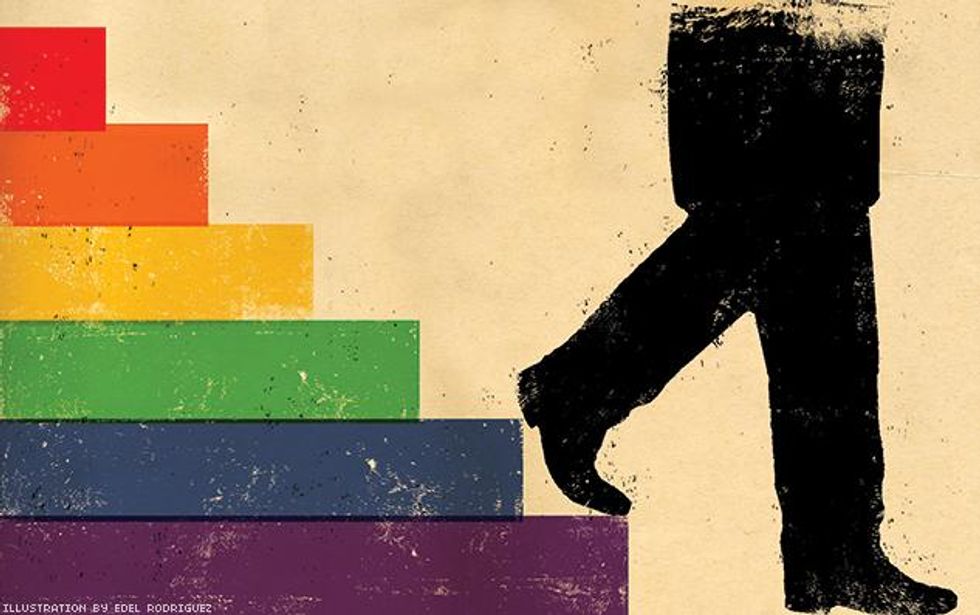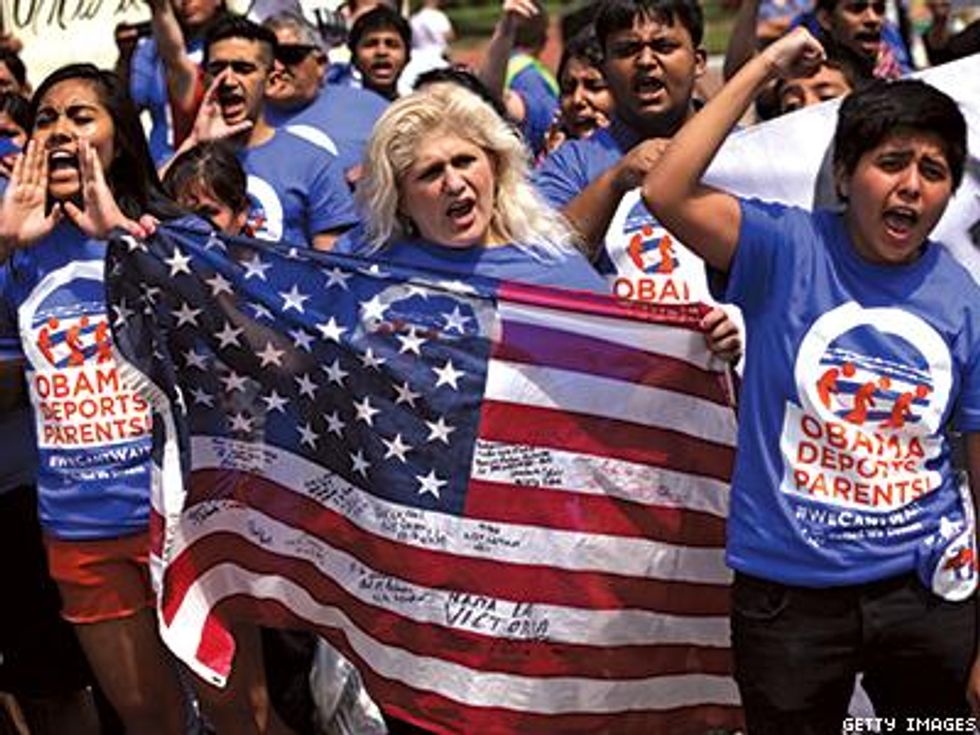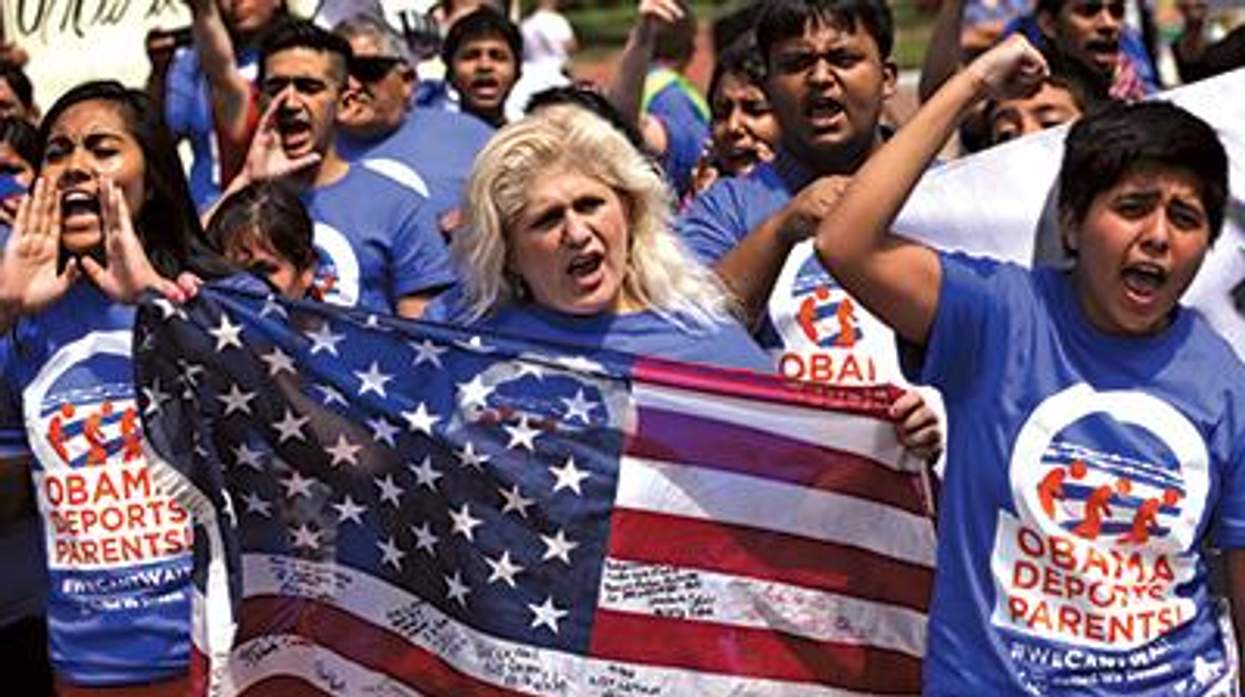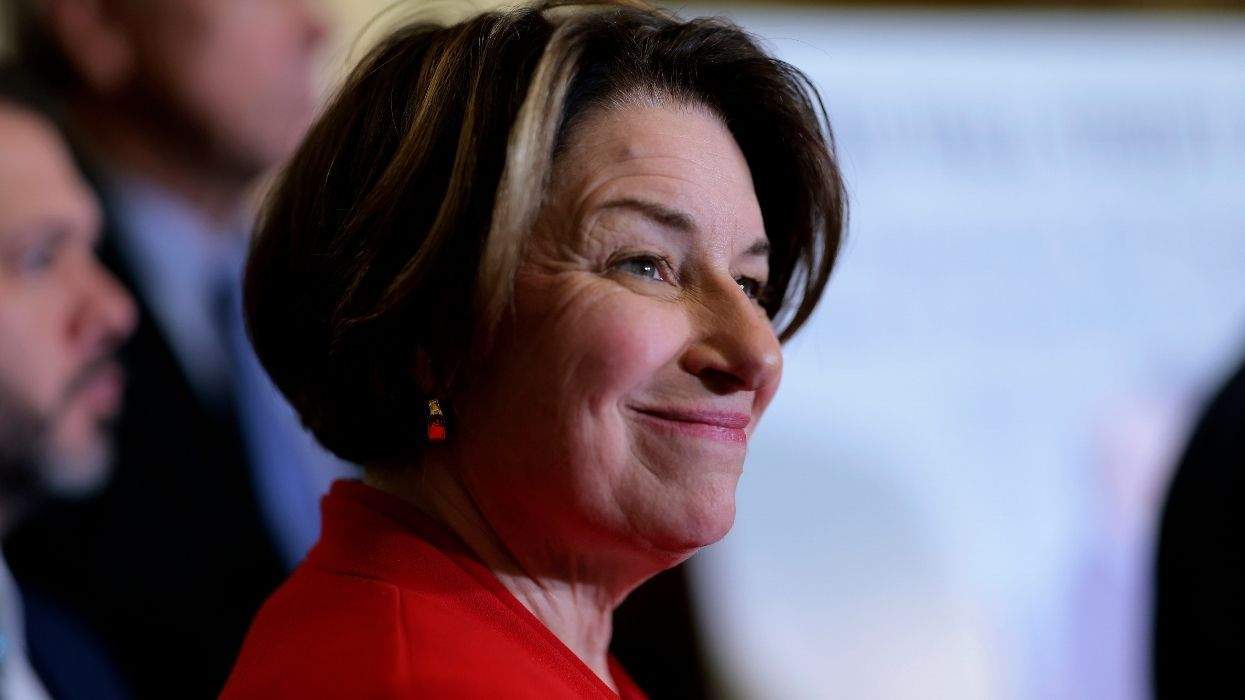 If there's one thing the 2014 midterms demonstrated, it's that the LGBT movement is in political trouble. No, not simply because Republicans swept the nation. It's worse. We were virtually nowhere in the discourse.
If there's one thing the 2014 midterms demonstrated, it's that the LGBT movement is in political trouble. No, not simply because Republicans swept the nation. It's worse. We were virtually nowhere in the discourse.Some analysts took this as a welcome turn of events. "It's the end of the wedge!" they proclaimed. True. But it also meant that our political agenda -- whatever that might be -- got exactly zero airtime. Perhaps that's because, aside from winning marriage equality, no one really knows what our political agenda is anymore.
At the outset of the 2008 election, the battle lines on LGBT issues were already clearly drawn: hate crimes, employment protections, repealing "don't ask, don't tell," overturning the Defense of Marriage Act, and eventually seeking marriage equality. Those goals have now been gutted either because they've been accomplished or are on their way to success -- or, in the case of the Employee Non-Discrimination Act, have simply lost unified support within the movement. What's left to rally around? Not much at the moment.
The first primary debates of the 2016 election cycle haven't been scheduled yet. But in the 2008 cycle, the first Democratic debate came in April 2007. By June 2007, all eight of the Democratic contenders on the stage in New Hampshire had coalesced around the idea of repealing "don't ask, don't tell." Some said they would do it via executive order, and others said they would push a legislative solution. But they were all knowledgeable about the topic; some had even studied up on it. As I noted at the time, it was a moment of rare unanimity on a stage full of candidates trying to distinguish themselves from among their peers. Of course, it presaged the successful repeal effort.
But, eight years later, the only thing tangibly left to discuss on the LGBT agenda is the effort to achieve marriage equality. On that front, our legal advocates are more than pulling their weight and have things well in hand. However, if the LGBT movement wants anything other than marriage quality to be elevated during the 2016 election cycle, now is the time to act.
If you wonder what inserting yourself into the political discourse looks like, look no further than the DREAM Act's so-called "dreamers" during the midterms. They were everywhere last fall demanding answers on their number 1 priority: passing immigration reforms. At a campaign rally in North Carolina, they jumped onstage with Democratic senator Kay Hagan and wielded signs that read friends don't deport friends and kay hagan has lost my vote. (Hagan voted against the DREAM Act in 2010.)
The DREAMers also repeatedly challenged Hillary Clinton. They drowned her out once at Hagan's rally and again during a campaign event for Lt. Gov. Anthony Brown's gubernatorial bid in Maryland.
One month earlier, DREAMers had issued their opening salvo to Clinton in a rope line at outgoing senator Tom Harkin's annual steak fry in Iowa.
"I was wondering what you feel about Obama's delay on immigration," DREAMer Monica Reyes asked Clinton.
"I think we have to keep working -- can't stop ever working," Clinton said in a slightly stilted response. Clinton, wearing dark sunglasses, never made eye contact and kept moving.
 Photo: United We Dream activists in a rally in front of the White House in July, 2014
Photo: United We Dream activists in a rally in front of the White House in July, 2014Cesar Vargas, co-director of the DREAM Action Coalition, pressed further. "The president has broken his promise to the Latino community, Madam Secretary, and we wanted to know whether you stand by the president's delay on immigration," he said.
"You know, I think we have to elect more Democrats," Clinton answered before moving on.
The Iowa action prompted this headline from MSNBC: "Immigration Activists Put Democrats on Notice." After the Maryland heckling, CNN's John King noted, "It's not going away, and it does tell you (A) Republicans have an opening, but (B) Democrats have a credibility problem with the fastest-growing segment of the American population."
So, who do you think is on Team Hillary's radar right now? I can assure you that dreamers are and that, consequently, her campaign is actively trying to figure out how to best position her on immigration going forward.
Unfortunately, the only message the Clintons received from the LGBT movement last fall came in the form of an invitation. The Human Rights Campaign rolled out the red carpet for former president Bill Clinton to headline its October fundraiser.
Perhaps it's not fair to compare HRC with DREAMers. HRC will never be a confrontational entity. But the only time Hillary Clinton was forced to really think hard about LGBT issues in 2014 was when NPR's Terry Gross interrogated her about what motivated her evolution on marriage equality.
Politically speaking, there's still plenty of work to be done to achieve equality for LGBT Americans outside marriage. Slowly but surely, the mainstream media are starting to catch on to the fact that same-sex couples can now legally marry in some states where they can also be legally fired or denied housing based on sexual orientation or gender identity. This is a message that increasingly needs to be pushed to the forefront as our legal eagles blaze a path toward providing the freedom to marry in all 50 states.
But we need a new bill -- or bills -- because ENDA has lost the confidence of many people in the community. (It seemed unlikely to pass during the lame duck session at the time of this writing.)
Perhaps a bill will have surfaced by the time this article publishes. Last July, HRC President Chad Griffin endorsed a comprehensive LGBT civil rights bill that would ensure equity in employment, education, housing, public accommodations, and credit. But we need an all-hands-on-deck effort to get behind such an effort and raise its profile. That includes leadership from groups, hard questions from activists, a constant push to get the attention of mainstream journalists, and campaign pledges from the 2016 candidates. Even if the groups can't agree on a bill, we should still be asking politicians how they plan to equalize treatment for all LGBT Americans. Supporting marriage equality is not enough.
Most important, the legislative landscape in which the next president will maneuver is being created right now. And the LGBT movement has already fallen behind the curve.















